With our highly stressful, anxious, and chaotic lives, meditation has become a necessity for our mental and emotional well-being. But have you ever wondered about how deep meditation can help you explore the depths of your inner self? Do you know how to get into deep meditation?
Deep meditation is a simple yet excellent way to experience unparalleled tranquility, mental clarity, profound relaxation, and spiritual growth.
Today, let us explore how to get into deep meditation, deep meditation symptoms, deep meditation benefits, deep meditation experiences, and some interesting tips for deeper meditation. So join us in this journey of discovering the true essence of inner peace.
What is Deep Meditation?
Deep meditation refers to a state of increased concentration and awareness. In this state, our mind traverses beyond the limits of daily thoughts and reaches a level of profound stillness.
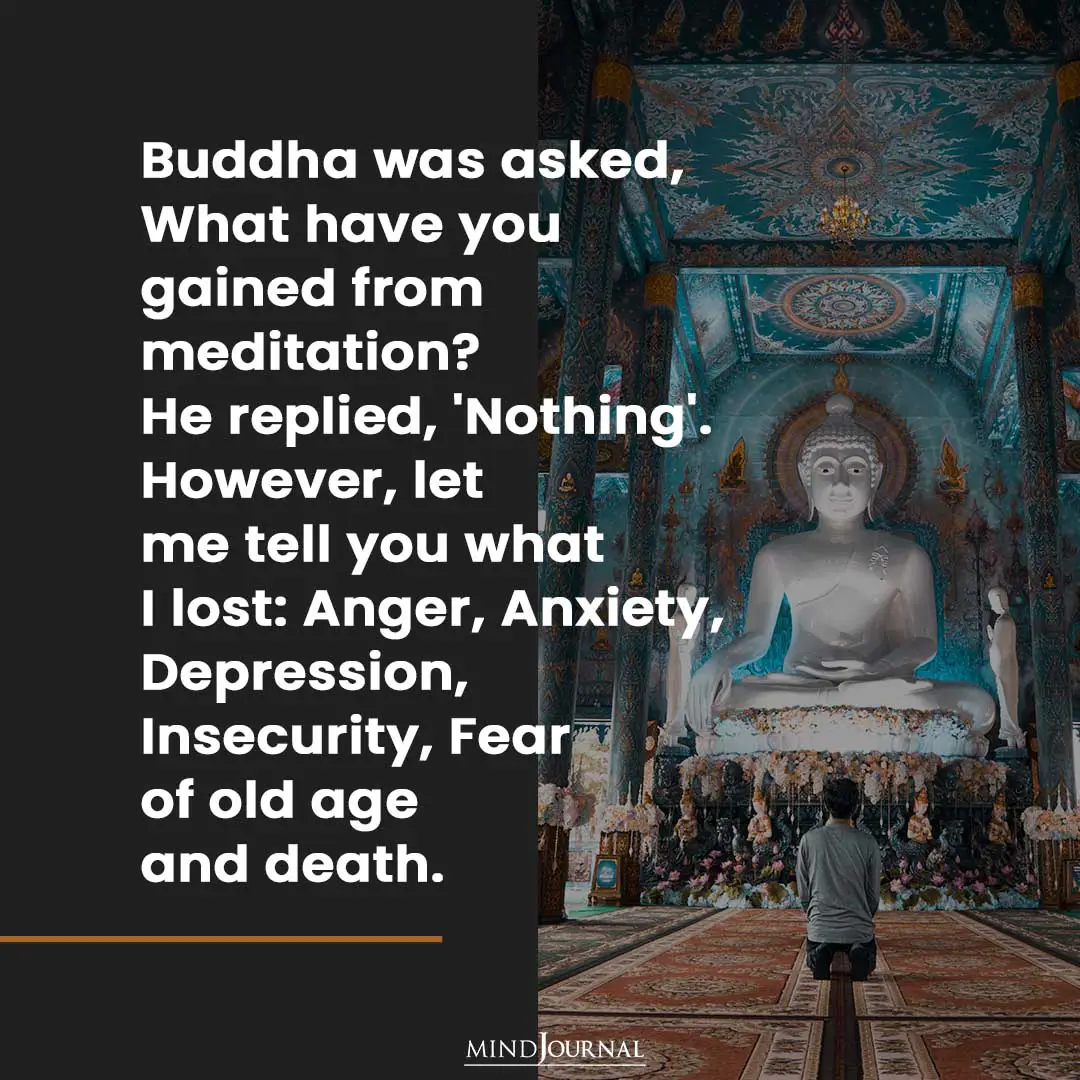
It is a mental and spiritual practice that enables us to get in touch with our innermost thoughts, emotions, desires, and self, empowering us to experience peace, clarity, and spiritual awakening.
Related: How Your Brain Changes After Meditating for One Year
How to Get Into Deep Meditation: Practical Tips and Techniques
Are you looking for some tips for deeper meditation? Here are a few strategies on how to get into deep meditation that will help you connect with your inner self –
1. Find a Comfortable Meditation Posture
Before you try to experience a deep state of meditation, start by finding the right posture that feels relaxing yet alert. You may choose to sit on a cushion in a cross-legged posture, sit on a chair and place your feet on the floor, or even kneel on a meditation bench.
You must keep your spine straight to facilitate proper circulation and breathing. You can also try out different postures initially and see which one feels most comfortable to you for a prolonged period.
2. Relax Your Body and Release Tension
Once you have found the right posture, focus on relaxing your body and mind. Make a conscious effort to relax by closing your eyes, and taking deep breaths. There is no doubt that relaxing is one of the best tips for deeper meditation.
You may also do a body scan by gradually focusing on your bodily sensations from head to toe, observing particular areas of discomfort or tension.
Release the tension you hold in your body and you breathe out, letting your muscles relax and soften. It will allow you to experience physical relaxation, which is a crucial stage in deep meditation.
3. Focus on Your Breath
Your breath is the gateway to deep meditation. Deep breathing is an important and solid technique to learn how to get into deep meditation. Without trying to control your breath, bring your awareness to the natural rhythm of breathing.
Be aware of the sensation of your breath as you inhale, as hold your breath for a brief moment, and as you breathe out. Breathe from your stomach and focus on the point of stillness between inhaling and exhaling.
Every time a new thought arises and your mind starts to wander away, be aware and bring your focus back to your breath, using it as a focal point to anchor your awareness.
4. Cultivate a Non-Judgmental Mindset
The key to experiencing the true bliss of deep meditation is developing a non-judgmental mindset. As you become non-judgmental, you will be better able to observe your deepest thoughts and feelings with clarity instead of getting attached to them.
It is normal to have multiple thoughts arise during your meditation session. However, make sure to acknowledge their presence without judgment and observe them with detached curiosity.
Just like clouds effortlessly pass in the sky, allow your thoughts to come and go without holding on to them. Whenever you find yourself attached to a thought or emotion, gently bring your attention to your breath.
This will help you to have a calm mind and create some mental space, which is necessary for deep meditation.
Related: A Guide to Zazen Meditation: 9 Transformative Benefits For Your Mind and Soul
5. Embrace Stillness and Silence
In deep meditation, stillness and silence are crucial for experiencing comfort. Gently allow yourself to release the need for external stimuli and avoid getting entangled in distractions.
Live in the present moment and let go of all your worries about the past and the future. By being silent and still, you can sow the seeds of deep meditation. This is how to get into deep meditation.
6. Set Your Intentions
Before every meditation session, define a clear goal that you want to achieve from the practice. Choose what exactly you will concentrate on, be it relaxation, self-discovery, or spiritual growth.
By setting intentions, you can easily guide your energy and attention, which in turn will make your meditation more profound and purposeful.
7. Follow a Consistent Routine
Creating a regular and consistent routine of meditation is vital for taking your practice deeper. Choose a specific time of day that works best for you and stick with it.
Consistency enables your mind and body to get used to the practice, making it easier for you to go into deeper meditative states as time goes by. It is one of the most effective tips for deeper meditation.

8. Cultivate Mindfulness
In essence, mindfulness means being aware of the present moment. By practicing mindfulness daily, you will be able to improve your concentration and attention during meditation.
Perform tasks consciously, paying close attention to feelings, ideas and emotional circumstances as they arise. This practice will enhance your ability to enter deep meditative states.
9. Practice Patience and Persistence
Deep meditation is a learning process that comes from regular practice over time. Be patient with yourself realizing that your meditation will differ in depth from one session to another.
On some days, there may be profound tranquility and lucidity; while on others, your mind might be restless. Take each meditation as it is without passing judgment or expecting anything from it.
By practicing persistently and being committed, your ability to go deeper into a meditative state will improve naturally. This is one of the most practical tips on how to get into deep meditation.
10. Gradually Increase Meditation Duration
If you are a beginner in deep meditation, start with shorter sessions which you can gradually lengthen as you become more comfortable. Begin with 10-15 minute sessions until you can do 20-30 minutes or if possible even longer.
Over time, extending the span of your meditations will enable you to adapt and enter deeper states of meditation.
Related: What Is The Best Posture For Meditation Practice? 6 Best Ways To Sit For Meditation
11. Seek Guided Meditations or Meditation Classes
If entering a profound state of meditation is hard for you when alone, then maybe you should think about seeking out help by using guided meditations or even going to meditation classes.
Guided meditations give verbal instructions and prompts that can assist one to relax more deeply and concentrate better during their time of meditating. Meditation courses provide a supportive environment where you can connect with experts and mentors who can teach you how to meditate in a community of like-minded individuals.
Remember that the process of getting into deep meditation is personal and varies from one person to another. By incorporating these tips into your meditation routine with an open heart and mind, you will tap into the profound benefits and transformative power of deep meditation techniques.
Deep Meditation Symptoms You Should Know
Wondering how you will know if you have reached a state of deep meditation? Here are a few deep meditation symptoms and signs that you should know about –
1. Profound Relaxation
One very noticeable symptom of deep meditation is a deep sense of relaxation and comfort.
While you close your eyes and ignore all the distractions around you, you will feel a strong sense of relief as tension is released from your body and mind. Your muscles will relax as you feel calm and serene.
2. Altered Perception of Time
In deep meditation, you may not experience time as you usually do. Sometimes minutes seem like hours and sometimes hours will pass in moments.
This distortion of time underlines how deeply meditative you are and how detached you are from worldly entanglements. This is among the basic deep meditation symptoms.
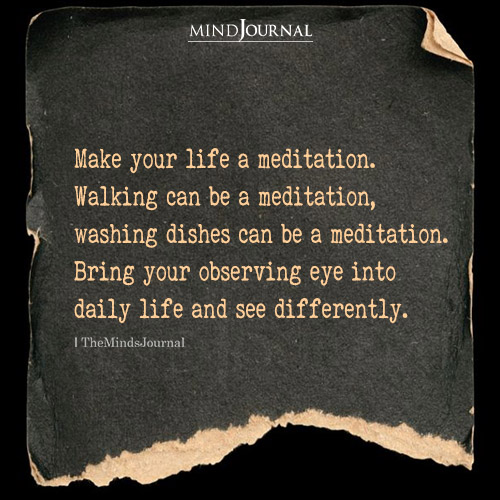
3. Heightened Awareness
Transcendental meditation brings about heightened states of awareness. It makes senses sharper and you may observe subtle sounds, smells and feelings that usually go unnoticed.
This heightened awareness ensures that each moment is lived to its fullest and enables you to attune deeply to your inner self.
Related: How To Meditate Without Meditating: 7 Alternative Forms of Meditation
Deep Meditation Experiences To Unlock Inner Tranquility
When you practice deep meditation, the experience can be truly unparalleled and unexplainable. Although each person may have unique experiences, here are some common deep meditation experiences –
1. Expanded Consciousness
Intensive meditation brings about expanded consciousness, where you rise above your everyday thoughts and perceptions. In this state, you might feel a deep sense of connectedness with every living being and everything in the universe.
When you know how to get into deep meditation, you may feel as though you are part of something greater than yourself.
2. Inner Stillness
When you progress further into your meditation, there will be times when you find complete stillness within yourself. The nonstop noise in your mind vanishes and is replaced by a peaceful inner silence.
In this calmness, peace, clarity, and wisdom flow from boundless sources within oneself. Undoubtedly, this is one of the most sought-after deep meditation experiences.
3. Spiritual Insights
Deep meditation unlocks the gates of spiritual insights and revelations for one to walk through. As your mind grows more receptive to higher states of consciousness, you will start to receive profound insights, intuitive guidance, and a deep understanding of life’s mysteries.
Such experiences have the potential to transform people, resulting in personal growth and a better sense of purpose.
Related: Meditation As A Spiritual Practice: Spiritual Meditation Meaning And Benefits
6 Deep Meditation Benefits For Your Mind and Body
Deep meditation holds several transformative benefits and some of them are mentioned below –
1. Stress Reduction and Calmness
Practicing deep relaxation helps to release tension, and stimulates the relaxation response for achieving calmness and resilience.
2. Sharpened Focus and Clarity
When we silence our minds, it means that we are enhancing cognitive abilities leading to improved attention and decision-making, better focus, and an increase in productivity.
3. Emotional Resilience and Harmony
Mindfulness and self-reflection encourage emotional balance and create a place for stability and harmony without any judgment. This is among the most helpful deep meditation benefits.
4. Physiological Well-being
Knowing how to get into deep meditation can lead to physiological improvements such as decreased blood pressure, superior immune system function, and enhanced sleep quality.
5. Spiritual Growth and Fulfillment
Entering the depths of one’s consciousness can lead to powerful spiritual experiences that result in inner peace, fulfillment, and alignment.
6. Compassionate Relationships
One of the best deep meditation benefits is that it improves our self-awareness which enables us to develop empathy, compassion, emotional intelligence, and communication skills, thereby helping us build more meaningful connections with others.
Related: How Can You Clear Your Mind and Find Inner Peace: 9 Secrets
Takeaway
Learning how to get into deep meditation is an amazing journey of self-understanding and inner transformation. You can easily unlock the benefits of deep meditation by following the above-mentioned tips and committing yourself to a regular practice.
Deep meditation is a personal experience and each individual’s journey will be unique. Embrace the process, be patient, and let the benefits arise naturally. May your journey be enlightened with serenity, clarity, and spiritual growth.
Happy meditating!
Frequently Asked Questions (FAQs):
What is deep meditation?
Deep meditation is a highly beneficial practice that includes focused attention, relaxation, and increased awareness for self-discovery.
What happens when you meditate deeply?
Deep meditation helps us relax, boosts awareness, and promotes inner calmness, fostering mental, emotional, and physical well-being.
What is the deepest state of meditation called?
The deepest state of meditation is typically known Samadhi, marked by profound tranquility, unity, and bliss.
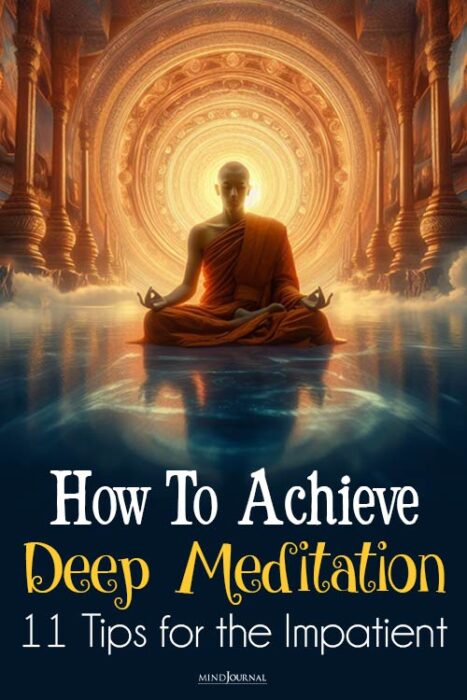
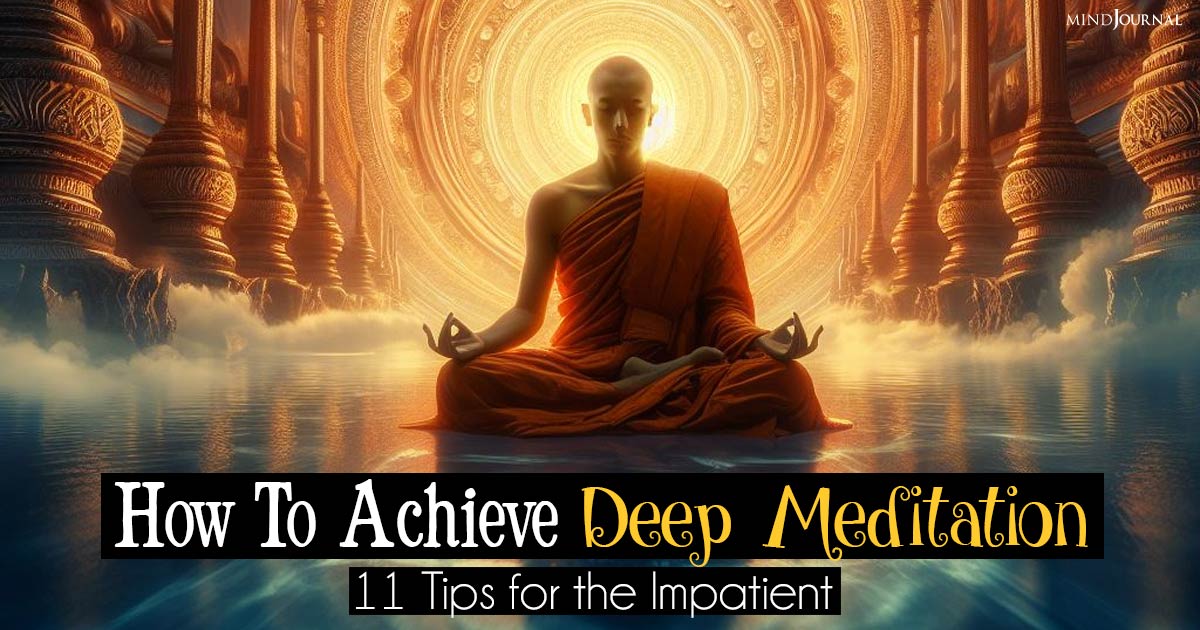


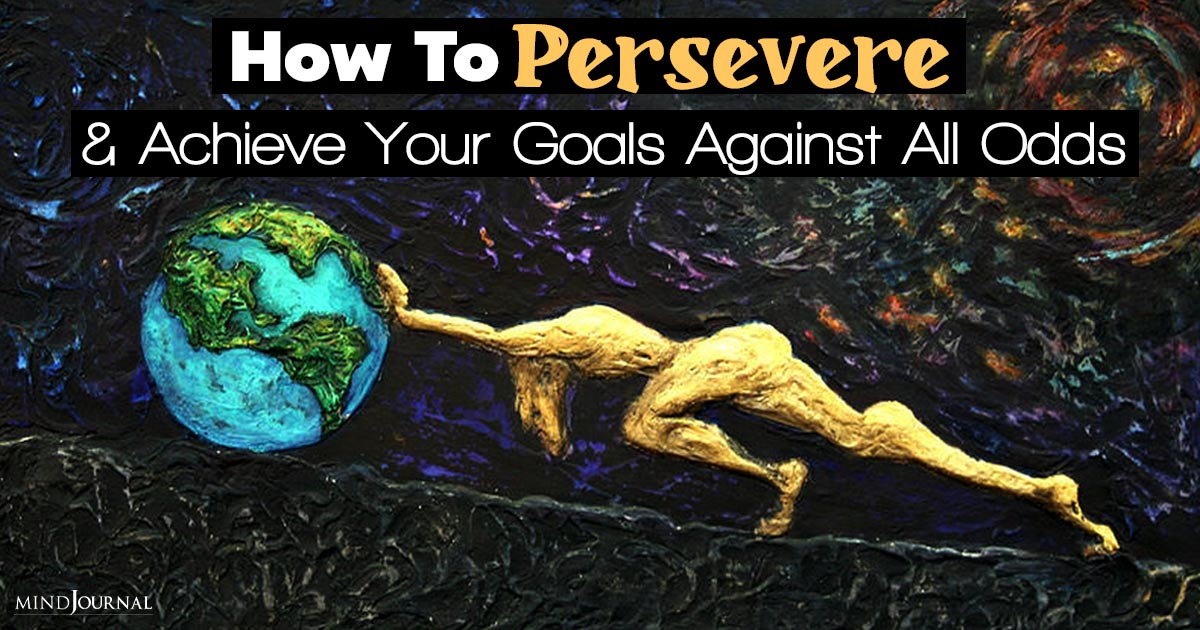



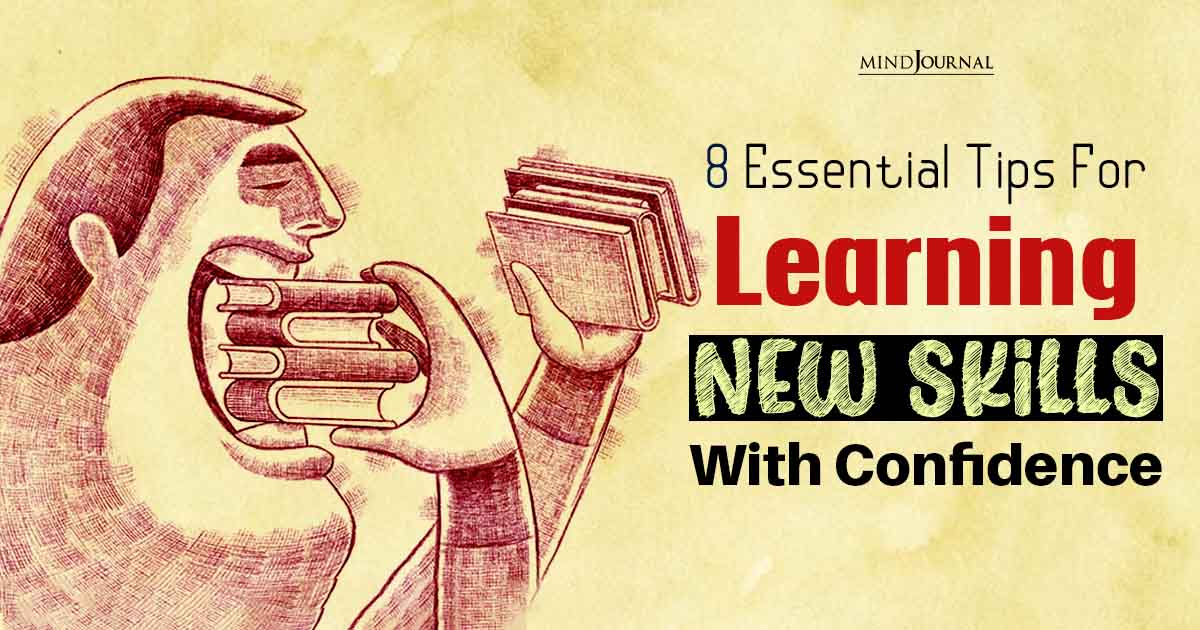
Leave a Reply
You must be logged in to post a comment.